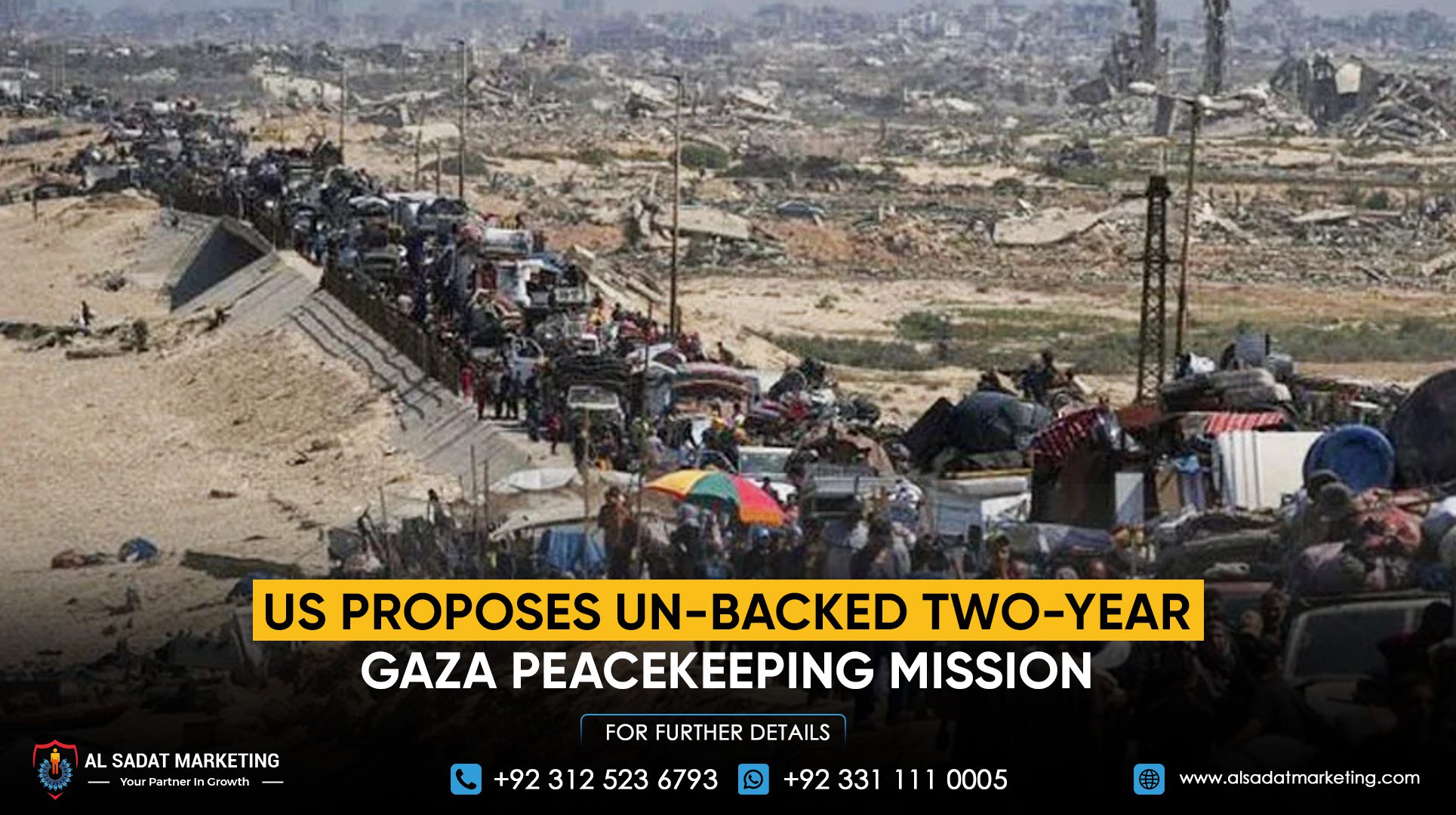The United States has drafted a new United Nations resolution that calls for the creation of an international stabilization force in Gaza. The proposal is linked to President Donald Trump’s Gaza plan and follows the ceasefire agreement recently reached between Israel and Hamas. The draft document, seen by Reuters, is still being developed and has not yet been brought to the UN Security Council for discussion or a vote.
The proposal suggests establishing a transitional administration known as the “Board of Peace” to govern Gaza during the stabilization period. This administration would organize and direct an International Stabilization Force, or ISF, which would be allowed to use force if necessary to protect civilians and ensure the delivery of humanitarian aid. The force would also work to secure Gaza’s borders with Israel and Egypt, alongside a newly trained Palestinian police force.
A major part of the plan focuses on demilitarization. The ISF would be tasked with reducing the presence and influence of non-state armed groups in Gaza and dismantling their weapons. This remains a sensitive issue, as Hamas has not accepted any terms requiring it to give up its armed wing or weapons.
The United States has stated that it will not send American troops to Gaza. Instead, discussions are underway with possible contributing countries, including Indonesia, Egypt, Qatar, Turkey, the United Arab Emirates, and Azerbaijan. However, regional views differ on who should participate. Israel has raised concerns about the possible involvement of Turkish forces.
The draft also outlines a reconstruction effort, with financial support managed through a trust fund led by the World Bank and other international donors. The aim is to rebuild Gaza’s infrastructure and support long-term development after years of conflict.
For the resolution to pass, it would need at least nine votes from the 15-member UN Security Council and no vetoes from permanent members such as the United States, Russia, China, France, or the United Kingdom. Diplomats say it is too early to know when the United States will formally present the resolution.
The plan’s future depends on political agreement among regional governments, international partners, and Palestinian leadership. Discussions are ongoing, and the final outcome is still unclear.










